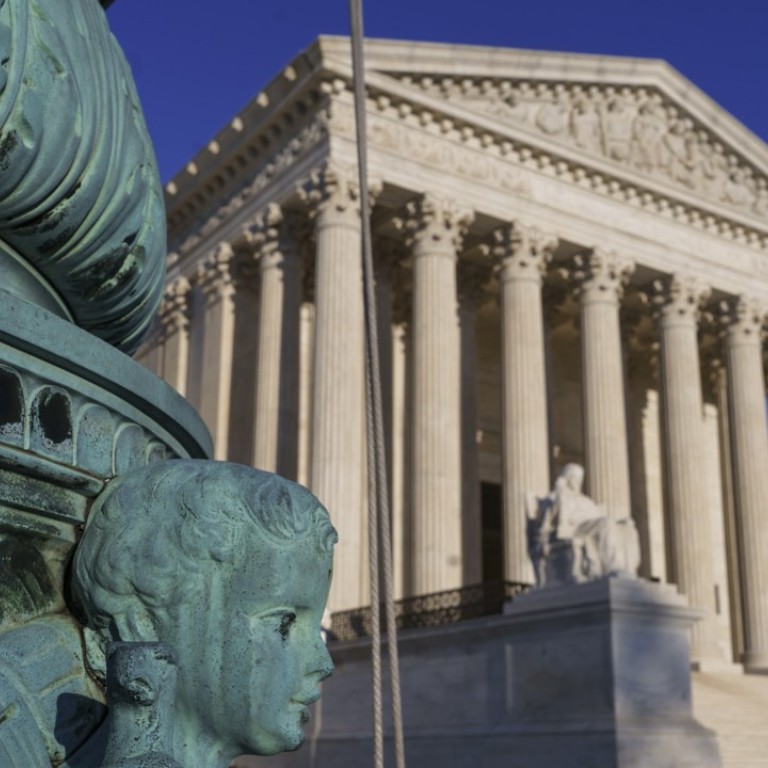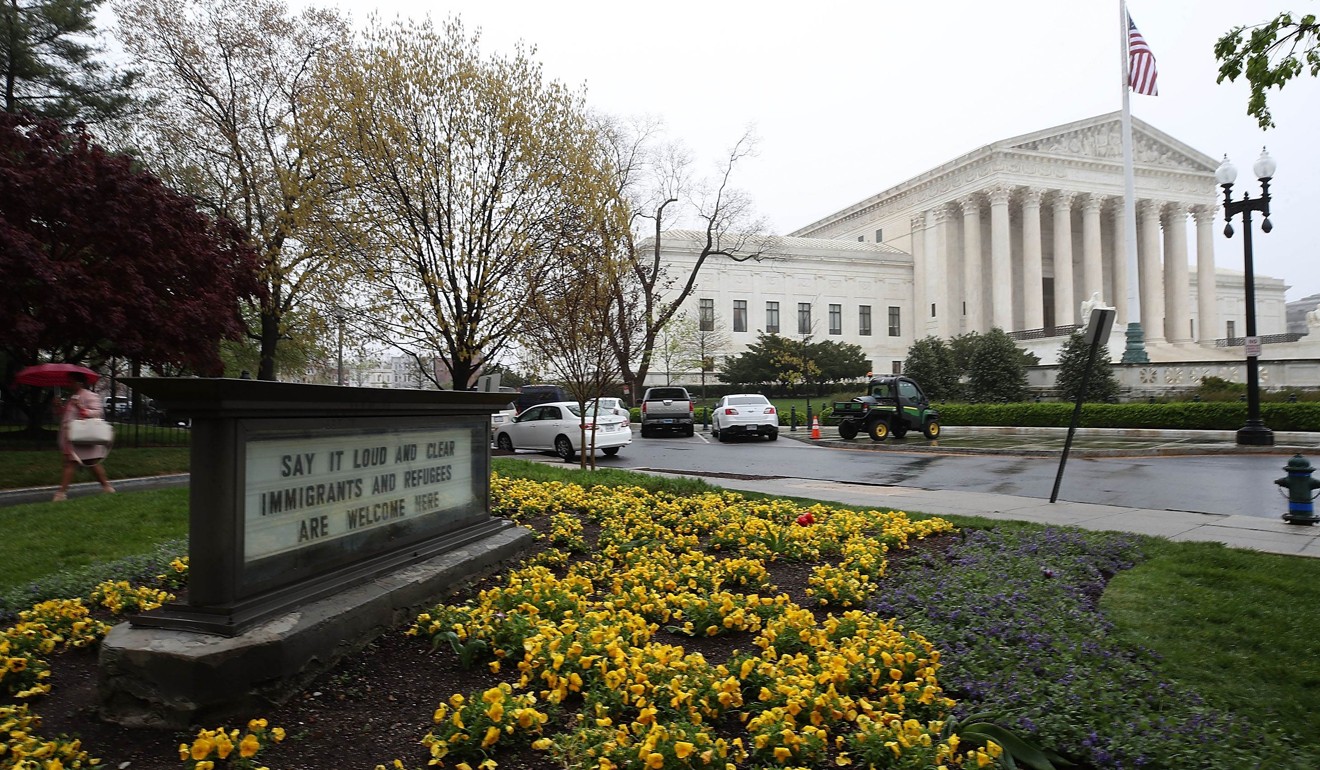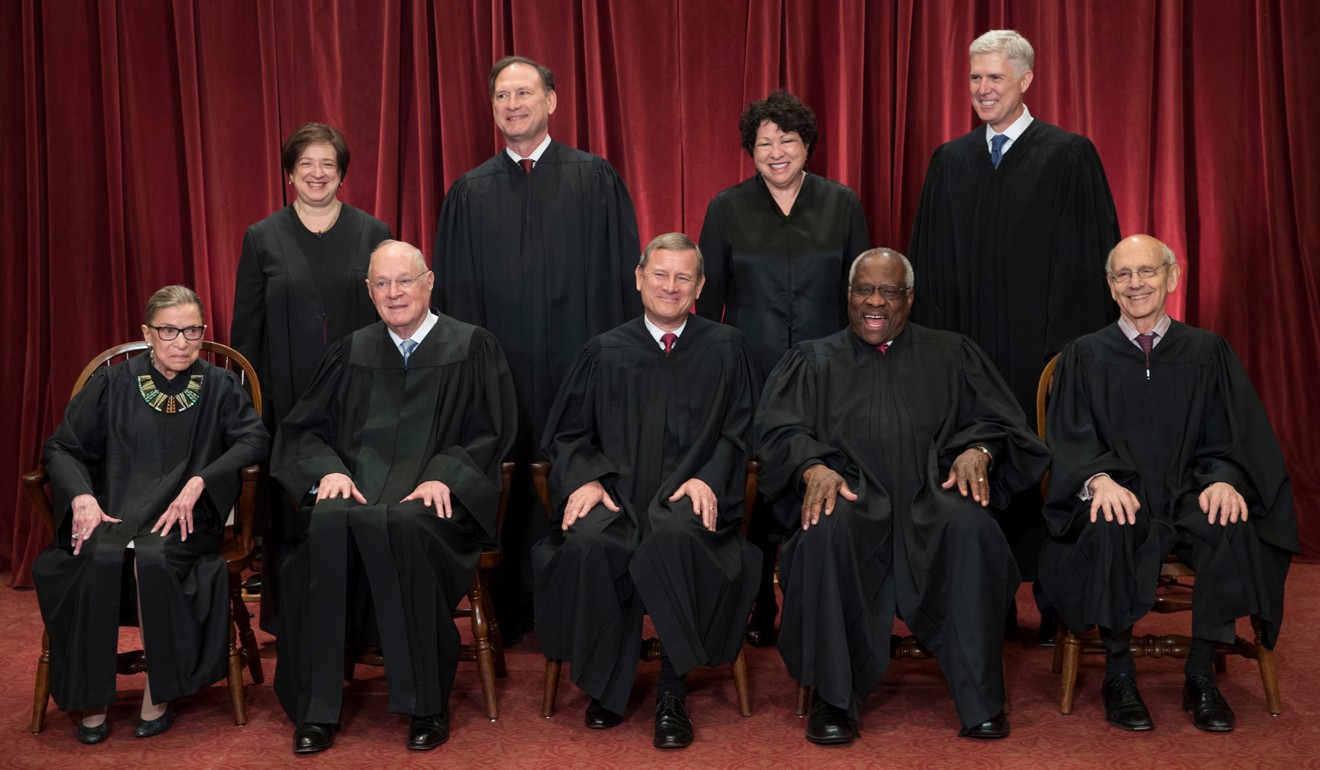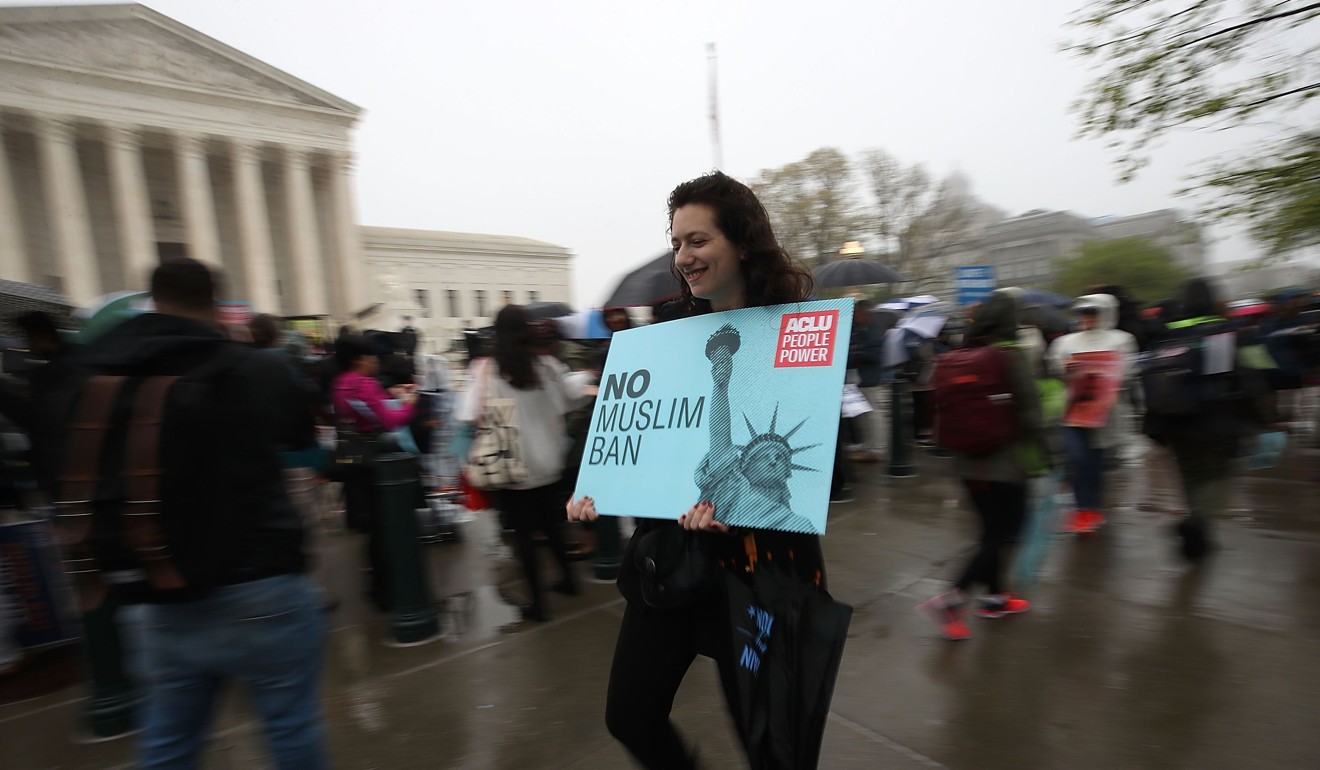
US Supreme Court leans toward upholding Trump’s travel ban against people from majority-Muslim countries
Two conservative justices on Wednesday signalled they are likely to uphold the ban on people from several Muslim-majority nations on national security grounds
Conservative US Supreme Court justices on Wednesday signalled they are likely to uphold US President Donald Trump’s travel ban on people from several Muslim-majority countries, one of the most contentious policies of his presidency.
Both Chief Justice John Roberts and Justice Anthony Kennedy, a frequent swing vote on the nine-justice court, indicated they were unwilling to second-guess the president on the national security justifications for the policy.
The challengers led by the state of Hawaii have argued that the policy was motivated by Trump’s enmity toward Muslims and that it violates federal immigration law as well as the US Constitution’s prohibition on the government favouring one religion over another.

But conservative Justice Samuel Alito said during the argument that the text of Trump’s proclamation announcing the ban “does not look at all like a Muslim ban”.
Referring to statements Trump made during his presidential campaign, like calling for “a total and complete shutdown of Muslims entering the United States,” Solicitor General Noel Francisco argued that those should be off-limits for courts to scrutinise because Trump was not the president at the time.
In the first half of the argument, Kennedy did express some scepticism that courts should not review words from candidates from the campaign trail.
US not seeking to ‘reopen’ Iran nuclear deal, envoy says
Kennedy gave the example of a local mayor who makes discriminatory statements and then two days after taking office acts on them.
“You’re saying that everything he said is irrelevant?” Kennedy asked Francisco.
The travel ban is the third version of a policy Trump first sought to institute a week after taking office in January 2017. The court is due to issue a ruling by the end of June.

The policy prohibits entry into the United States of most people from Iran, Libya, Somalia, Syria and Yemen. Chad was on the list announced in September, but Trump removed it on April 10.
Until Wednesday, the court had never heard arguments on the legal merits of the travel ban or any other major Trump immigration policy, including his move to rescind protections for young immigrants, sometimes called Dreamers, brought into the United States illegally as children.
Chinese tech company Huawei probed ‘for violating US sanction on Iran’
The court previously acted on the administration’s requests to undo lower court orders blocking those two policies, siding with Trump on the travel ban and opposing him on the Dreamers.
Trump’s hardline immigration policies have been a key part of his presidency. Other actions include moving taken against states and cities that protect illegal immigrants, intensified deportation efforts and placing new limits on legal immigration.
The Supreme Court on December 4 signaled that it might lean toward backing Trump when by a 7-to-2 vote it granted his administration’s request to let the ban go into full effect while legal challenges played out.

Trump has said that the travel ban is needed to protect the United States from terrorism by Islamic militants.
In a statement on Wednesday, US Attorney General Jeff Sessions cited the president’s “broad discretion and authority to protect the United States from all foreign and domestic threats”.
About 150 people demonstrated against the travel ban outside the courthouse on a rainy morning in Washington.
Seema Sked, 39, stood before the court’s plaza with a home-made sign that read, “Proud American Muslim”.
“The Muslim ban offends freedom of religion, which is a protected right,” said Sked, who immigrated with her parents from Pakistan when she was a toddler and now lives in Virginia. “It hurts me because it is singling out and demeaning Muslims because of their faith.”
The latest version of the travel ban also targeted Venezuela and North Korea. Those restrictions were not challenged in court.

